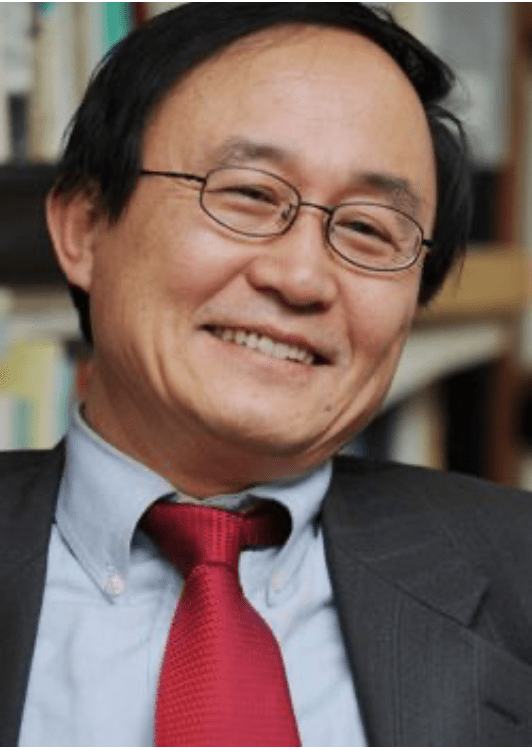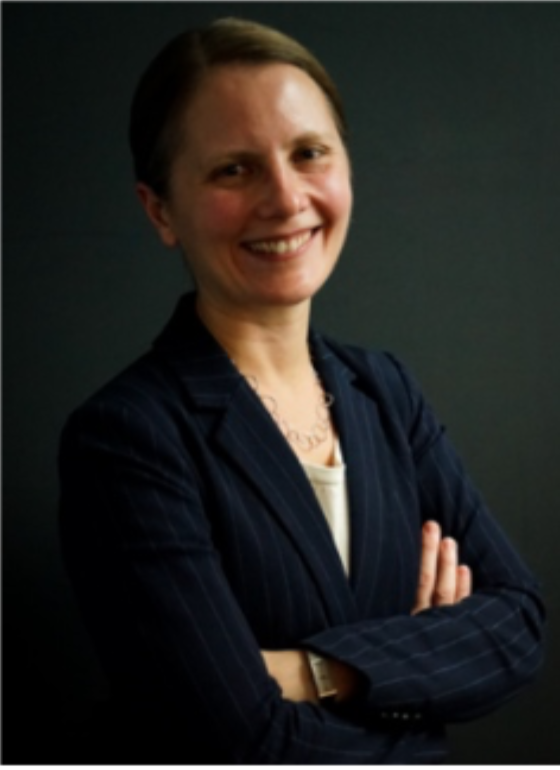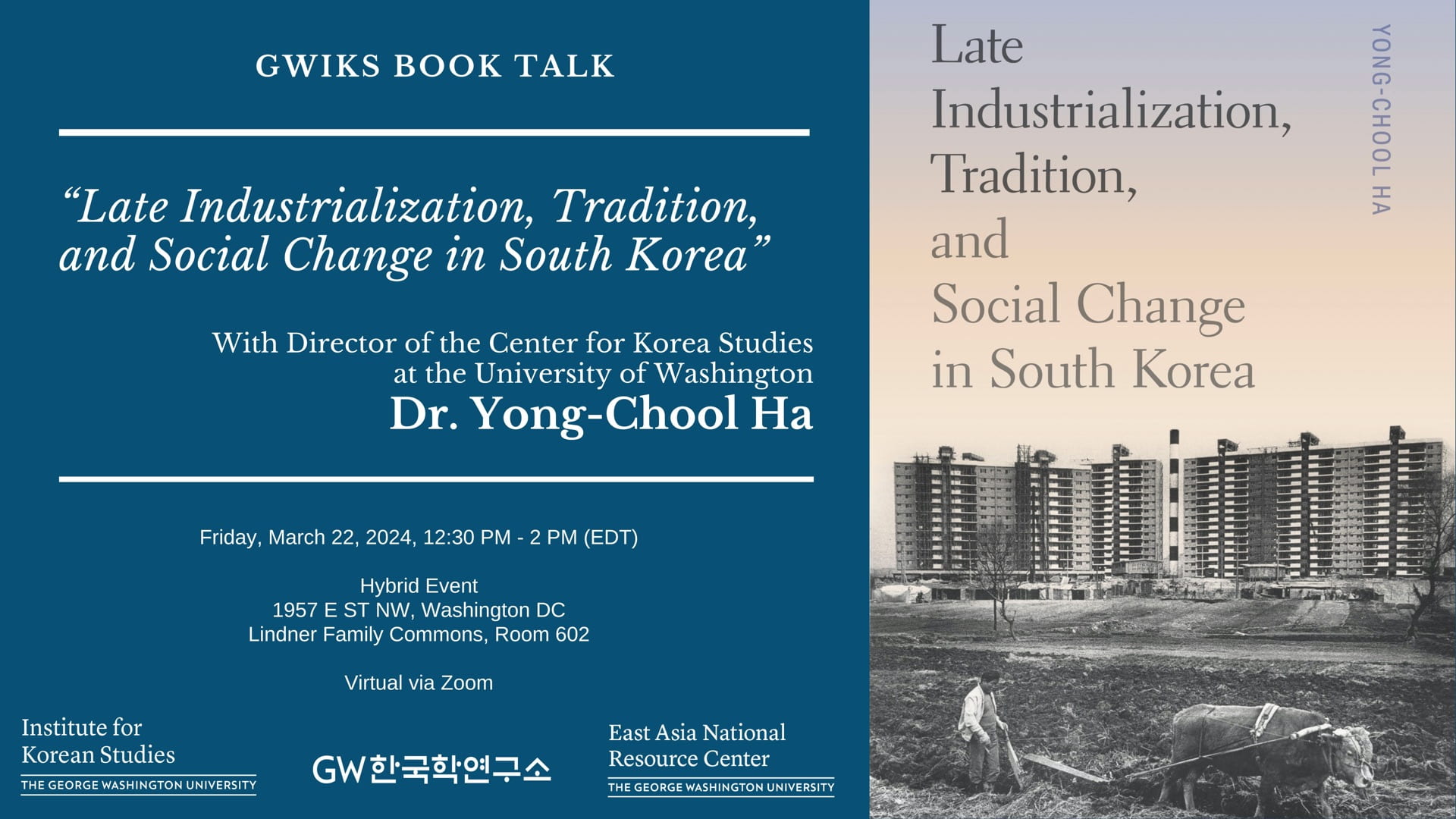GWIKS Book Talk
Late Industrialization, Tradition, and Social Change in South Korea
Friday, March 22, 2024
12:30 PM – 02:00 PM EST
Hybrid Event
1957 E ST Northwest, Washington DC
Lindner Family Commons, Room 602
Virtual via Zoom
Event Description
In Dr. Yong-Chool Ha’s latest book, he examines a paradox in Korea’s economic development: an ultra-modern industrial economy has been achieved, yet traditional networks of obligation and solidarity, such as blood, school, and regional ties have persisted, and even become more deeply reinforced, profoundly affecting the fundamental aspects of Korean politics and socio-economic relations. Ha contends that this paradox is not accidental, and that the course of Korea’s late economic development shaped and entrenched these “primordial” ties into Korea’s politics, society, and economy. Thus, the persistence and predominance of these ties, what he calls “neofamilism,” requires an explanation as to when, why, and how it arose. “Late Industrialization, Tradition, and Social Change in South Korea” is about the social consequences of late industrialization. While much has been written about the economic success stories of late industrialization, the analysis of changes in social relations engendered by late industrialization has been strikingly absent. The GW Institute for Korean Studies and East Asia National Resource Center invite you to join us for this special book talk lecture from Yong-Chool Ha as he narrows the gap between political economy and sociology in the study of late industrialization.
Speaker

YONG-CHOOL HA is Director of the Center for Korea Studies and Korea Foundation Professor of Korean Social Science at the Henry M. Jackson School of International Studies at the University of Washington. His primary academic interests are comparative politics and society with a particular focus on late coming nations (Korea, Japan, Prussia, China and the Soviet Union), Soviet and Russian politics, the Russian Far East, Korean domestic and international politics, inter-Korean Relations and East Asian regional politics and international theories in East Asia. He has edited or co-authored many books in Korean and English, including New Perspectives on International Studies in Korea, Russia’s Choice at the Crossroads, and Global Standards and Identity in Korean Society. He has also published countless articles for academic journals and conferences. His latest book, Late Industrialization, Tradition, and Social Change in South Korea, was released by UW Press in February 2024. He holds a B.A. from Seoul National University, an M.A. from Kent State University, and a Ph.D. from University of California, Berkeley.
Moderator

CELESTE ARRINGTON is Korea Foundation Associate Professor of Political Science and International Affairs at GW. She specializes in comparative public policy, law and social change, lawyers, and governance, with a regional focus on the Koreas and Japan. She is also interested in Northeast Asian security, North Korean human rights, and transnational activism. Her first book was Accidental Activists: Victim Movements and Governmental Accountability in Japan and South Korea (Cornell, 2016). She has published numerous articles and, with Patricia Goedde, she co-edited Rights Claiming in South Korea (Cambridge, 2021). Her current book project analyzes the legalistic turn in Korean and Japanese governance through paired case studies related to tobacco control and disability rights. She received a PhD from UC Berkeley, an MPhil from the University of Cambridge, and an AB from Princeton University. She is a core faculty of the GW Institute for Korean Studies (GWIKS) and president of the Association of Korean Political Studies. Her recent article“Knowledge production through legal mobilization: Environmental activism against the U.S. military bases in East Asia” with Claudia Kim won the Asian Law and Society Association’s distinguished article award.

